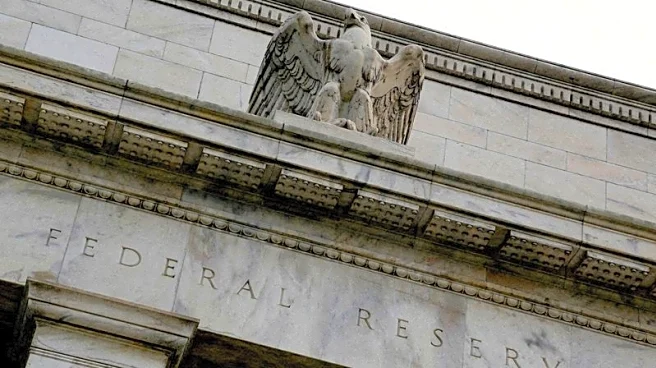(Reuters) -The prospect of a change in leadership and policy making at the U.S. Federal Reserve, in France and in Norway will keep markets on alert, while the European Central Bank meets and investors
brace for key economic data from the U.S., China and Japan.
Here's your week ahead in global markets by Alden Bentley in New York, Rocky Swift in Tokyo, Yoruk Bahceli, Dhara Ranasinghe and Karin Strohecker in London.
1/ THE PRICE YOU PAY
Investors have a lot riding on Thursday's August U.S. inflation report. A rate cut at the Federal Reserve's September 16-17 meeting is priced in but not a foregone conclusion, especially if the Consumer Price Index rises more than the 0.3% expected after July's 0.2% rise.
Some policymakers, including Fed Chair Jerome Powell, have signalled that an easing for the first time since December is likely, maybe this month - depending on data. The long expected pass-through from tariffs has yet to be really felt by consumers paying for imported goods.
U.S. Treasury auctions will be another test of where long-term interest rates are headed, especially Thursday's 30-year bond sale. T-bond yields rose above the psychological 5% level for the first time in seven weeks in recent days, enticing bond buyers and should indicate support for bidding at the long-end.
2/ MONEY'S TOO TIGHT (TO MENTION)
Who would envy being finance minister of France or Britain right now?
Economic growth is weak, debt uncomfortably high. Try and cut public spending and you have a revolt on your hands, signal you take fiscal discipline anything but seriously, and bond vigilantes swoop.
France holds a confidence vote in parliament on Monday, called precisely because its prime minister wants backing for an unpopular debt-reduction plan. He's unlikely to win, fuelling political uncertainty and difficulties bringing an over 5% budget deficit down.
Britain's fiscal challenges have hurt gilts and sterling. A November budget is shaping up as a key risk event.
Norway votes on September 7-8 in a tight election that has seen investments in Israel in focus, sparking an unusually public debate over how the Scandinavian country's sovereign wealth fund - the largest in the world - operates.
3/ POKER FACE
The ECB meeting is set to hold rates on Thursday. Traders reckon the central bank is done cutting this year.
A hawkish tone at July's meeting, an EU-U.S. trade deal and better-than-expected data since then have wiped bets on further easing.
Traders now see around a 30% chance of a rate cut by December, having nearly fully priced that move before the July meeting. Economists polled by Reuters also reckon the ECB is done for 2025.
Policymakers last time wanted to remain "deliberately uninformative" about future decisions. Markets will face another guessing game as traders try to read between the lines during ECB chief Christine Lagarde's news conference.
Expect her to also be pushed on what renewed political turmoil in France and the risk of a deterioration in U.S. Federal Reserve independence means for the euro zone economy.
4/ BIG IN JAPAN
Data from China and Japan will be closely watched for signs of how U.S. President Donald Trump's mercurial tariff policy is impacting Asia's biggest economies.
China trade data is due on Monday for August when talks between Beijing and Washington went down to the wire to extend a trade truce and forestall the imposition of more than 100% tariffs on each other's goods.
The previous print showed Chinese exports grew a better-than-expected 7.2% in July, but a breakthrough with the Trump administration remains distant.
Wednesday's Reuters Tankan index of Japanese manufacturers' sentiment, tracking the central bank's own gauge, may offer clarity on how Japan Inc is weathering the trade turmoil. Uncertainty over the tariff hit has stayed the Bank of Japan's hand on rate hikes.
5/ BLACK AND GOLD
Gold has again scaled record highs, boosted by uncertainty around the global economic outlook, U.S. trade policy and the fate of King Dollar after Trump's battle with the Fed triggered a high-stakes legal challenge and raised fresh concerns over central bank independence.
Analysts predict the run isn't quite over yet for the ultimate safe haven after spot gold prices hit a record high of $3,578.50 in recent days, and central banks joining the push to stock up on the precious metal.
But there's less of a shine on oil, ahead of a weekend meeting of OPEC+ producers expected to consider another increase to production targets in October.
Another boost would mean the group - which pumps half the world's oil and is on a push to regain market share - would unwind output cuts of about 1.65 million barrels per day, or 1.6% of world demand - more than a year ahead of schedule.
(Graphics by Pasit Kongkunakornkul; Compiled by Karin Strohecker; Editing by Emelia Sithole-Matarise)










